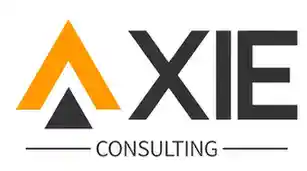
Dame Wendy Hall: A Visionary in AI Ethics and Innovation
When it comes to the world of artificial intelligence, few names carry as much weight as Dame Wendy Hall. A trailblazer in computer science and a fierce advocate for ethical AI, she has spent decades shaping the conversation around technology’s role in society. As a member of the AI Council and co-founder of the Web Science Research Initiative, her work bridges the gap between cutting-edge innovation and the human values that must guide it.
Breaking Barriers: Wendy Hall’s Journey in Tech
Dame Wendy’s career is a testament to resilience and vision. In the 1980s, she witnessed firsthand the stark gender imbalance in computing—a field that was rapidly becoming male-dominated. "When I started teaching computer science," she recalls, "we had zero women enrolled in our courses." This wasn’t just a pipeline issue; it was a cultural one. The rise of personal computers marketed as "toys for boys" created a stereotype that discouraged young women from pursuing tech careers.
Fast forward to today, and the problem persists—especially in AI. "If you look at machine learning," she explains, "it’s fed by mathematics and computer science degrees, which are still overwhelmingly male." But Wendy isn’t just highlighting the problem; she’s actively working to solve it. Her advocacy for diversity isn’t limited to gender—it spans ethnicity, age, disability, and interdisciplinary perspectives. "AI isn’t just code," she emphasizes. "It’s about ethics, law, psychology, and real-world impact. We need all voices at the table."
Ethical AI: Balancing Innovation and Responsibility
One of Dame Wendy’s core missions is ensuring AI serves humanity—not the other way around. Take facial recognition, for example. "It’s already here," she notes, "but do we even understand its implications?" From smartphone unlocks to surveillance, the technology is advancing faster than regulations can keep up. "There’s a duality to every innovation," she says. "The same tool that makes a parking lot safer at night could also infringe on privacy."
How Businesses Can Navigate AI Ethics
For companies integrating AI, Wendy’s advice is clear: proceed with purpose. "Ask not just what AI can do, but what it should do," she urges. This means:
- Transparency: Be open about how AI systems make decisions.
- Bias Mitigation: Audit datasets to prevent reinforcing inequalities.
- Human Oversight: Ensure AI aids—not replaces—human judgment.
She points to generative AI, like ChatGPT, as both an opportunity and a cautionary tale. "It’s a powerful tool, but it’s not sentient," she clarifies. "It predicts words, not truths." Businesses leveraging such tools must maintain human authenticity—using AI to enhance creativity, not automate it blindly.
The Future of AI: Collaboration Over Control
So, what’s next for AI? Dame Wendy envisions a world where AI is a collaborative partner in fields like healthcare, law, and education. "Imagine AI assisting doctors in diagnostics or helping teachers identify struggling students," she says. But she’s quick to add: "These systems are only as good as their training data. Right now, they hallucinate, they bias—they’re imperfect."
Why Diversity = Better AI
The key to better AI? Diverse teams building it. "Homogeneous groups create homogeneous solutions," Wendy states. "If we want AI that works for everyone, we need everyone involved in designing it." This isn’t just idealism—it’s practical. Diverse perspectives catch blind spots, challenge assumptions, and foster innovation.
Her call to action? "Bring in philosophers, artists, sociologists. AI isn’t just a tech problem—it’s a human one."
Final Thoughts: AI as a Force for Good
Dame Wendy Hall’s message is ultimately hopeful. "AI can free us from drudgery, amplify creativity, and solve grand challenges," she says. But this future hinges on ethical foundations. "We’re not just coding systems—we’re coding society’s future."
For businesses, policymakers, and everyday users, her wisdom is a compass: Innovate boldly, but always with humanity at the core. After all, the best technology doesn’t just advance what we can do—it reflects who we aspire to be.
